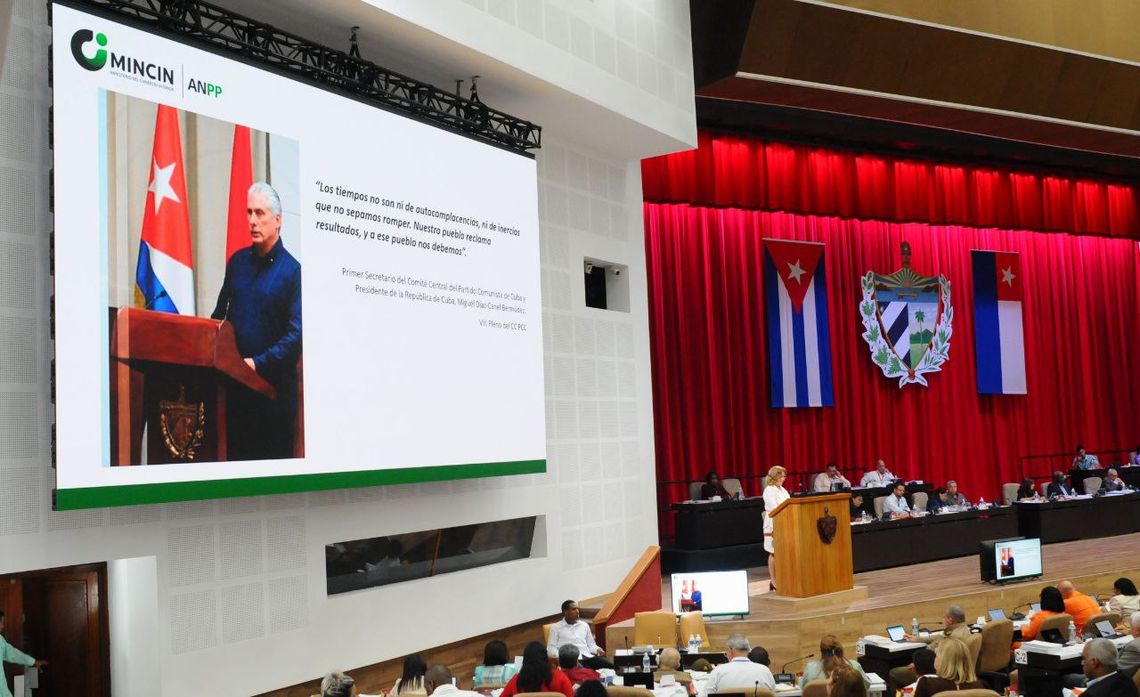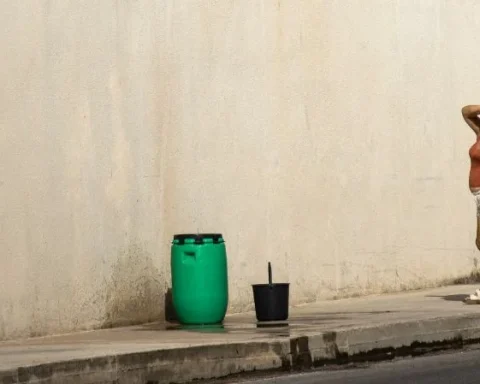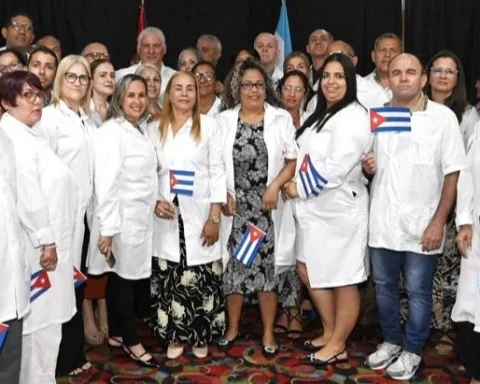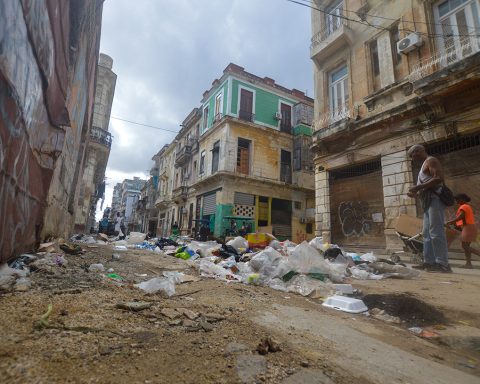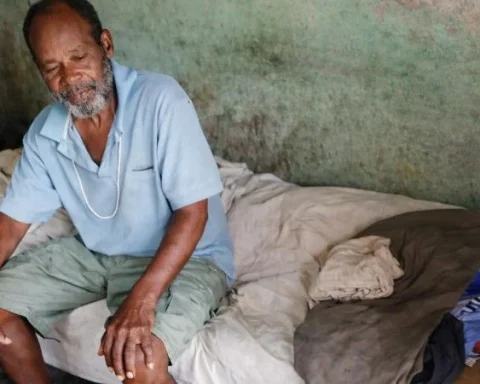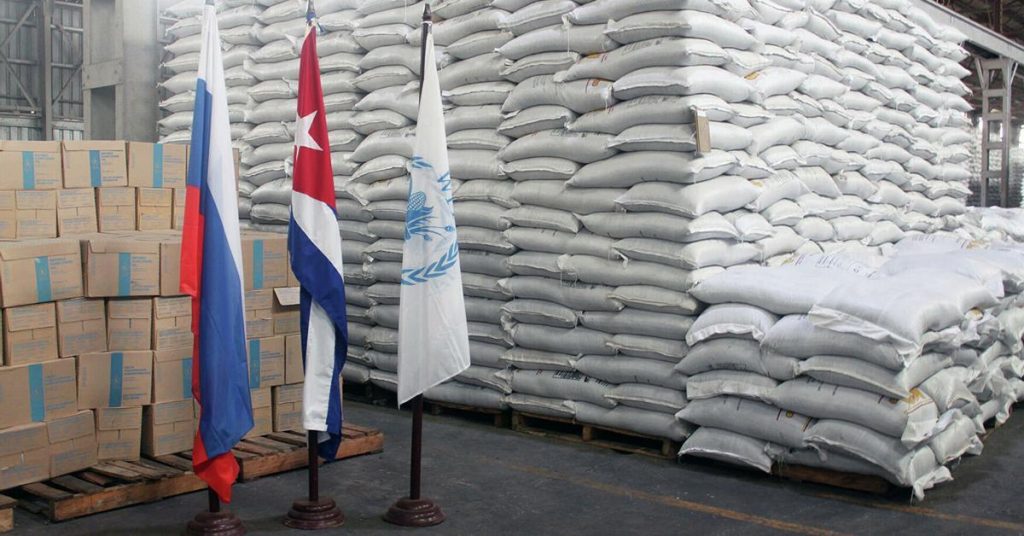Despite strong monitoring measures, the non-state sector has modified the structure of the supply of goods and services “at prices that are not within the reach of the entire population.”
The report presented this Thursday at the National Assembly of People’s Power by the Minister of Domestic Trade, Betsy Díaz Velázquez, recognizes this reality that translates into a force that the State is now trying to slow down and in some cases stop through rigorous controls and tax and tariff requirements that are clearly discouraging.
“Market segmentation is becoming more pronounced and consumption in the non-state sector, sales with payments in MLC from abroad and the informal market are increasing,” the minister said.
In recent days, a report by the National Office of Statistics and Information (ONEI) found that private companies (SMEs and self-employed workers) accounted for 44% of all retail sales in Cuba in 2023.
The jump has been spectacular. Just four years ago, this volume represented a meager 4%.
The report on the management of domestic trade, one of the sectors that has historically been in the firing line of citizens due to its poor performance, was based on the review of a network composed of 360,930 establishments, 95,688 state-managed (26.5%) and 250,910 by self-employed workers (69.5%).
The investigation also extended to the management of the selected wholesale marketing companies, in whose activity 408 non-state economic actors appear registered.
The minister informed the deputies that the level of consumer satisfaction was evaluated through the observation survey and the customer satisfaction index, highlighted a report prepared by the portal official Cubadebate.
“In the controls carried out, both in the state and non-state sectors, subjective problems persist related to the violation of the warranty periods of the equipment being sold, the sale of expired products and the non-implementation or denial of the use of electronic payment gateways,” the report revealed.
According to those responsible for the document, the common factor was “the lack of training of personnel on consumer protection and the failure to comply with consumer rights,” an issue that has remained unresolved for decades, especially in the mechanisms concerning commercial guarantees for products.
On the other hand, it was found that in the internal trade system, the lowest level of categorization is concentrated in refrigeration facilities, which suffer about 60% of a “marked deterioration in their civil and technological infrastructure, which demands external financial resources.”
In a review of the Central Commercial Registry, which currently controls 100% of the TCPs and CNAs subject to registration, as well as 87% of the MSMEs, 588 commercial authorizations were cancelled, of which 252 were requested again, 195 renewed and 57 rejected.
“The expected effect of reorienting national production to the state retail network has not been achieved,” admitted the head of the sector.
By the end of May, the sweep of commercial units resulted in 24,142 control actions in all provinces and the application of more than 3,000 punitive measures: 1,118 closures of establishments, 509 withdrawals of commercial authorizations and 2,032 fines.
The Mincin and population dynamics
In the midst of a demographic crisis unprecedented in more than a century, the Ministry of Culture plays its role in mitigating the phenomenon by providing attention to six programs linked to population dynamics.
At the end of May, 28,073 pregnant women were enrolled in the food basket program. However, last year the demand was not met and debts and repercussions from previous stages are still being carried over.
On the other hand, the school uniform programme received 92% of the resources provided for in the plan for the 2023-2024 school year.
A significant delay by the Ministry of the Interior is the delivery of modules to bedridden patients, who have been certified by health authorities to number 53,970. According to the minister, the donation of these textile elements will take place in the second half of 2024, based on supplies from the industry.
For their part, the 87,579 patients with certified incontinence were assured of a monthly supply of washing and toilet soaps.
The SAF, a lifesaver
Meanwhile, the fifth program, the Family Care System (SAF) service, which benefits just over 64,000 people in the country with two meals per day, faced its greatest deficits in the supply of proteins, food, vegetables and fruits, “with solutions in some territories through the linkage with productive forms and effective self-management,” explained the official.
In a highly socially sensitive service such as the SAF, the minister admitted that “good practices have not been generalised nor have gastronomic offerings been diversified”, and that it is “essential to purge the network administrators”.
In turn, school meals, which are delivered to an enrollment of 283,423 students, have been the target of “impacts on the quality and variety of menus,” with persistent “difficulties with the repair and recovery of means of transport, equipment and supplies for hygiene.”
The basket and the “extraordinary events”
Considered a national security issue, the standardized family basket (CFN) closed last year with “affects on beans, sugar, oil, coffee, chicken, meat products, eggs and domestic fuels, which continued in the first quarter of 2024.”
The report acknowledges that there is a fragmentation in deliveries to the retail network due to financial difficulties that prevent achieving the necessary coverage and the timeliness in receiving the products, reported Cubadebate.
Meanwhile, thefts and embezzlements continue, described by Minister Díaz Velázquez as “extraordinary events in the distribution chain and in wholesale warehouses.”
The official pointed out that illegal activities are concentrated in products such as rice, beans, sugar, coffee, cigarettes, pasta and powdered milk. Thefts from warehouses also continue, with the greatest incidents in the provinces of Pinar del Río, Havana, Las Tunas, Holguín and Guantánamo.
At the same time, when delivering international donations, priority was given to pregnant women, people in vulnerable situations and children with low weight and height.
Construction materials
In a country with a housing deficit of close to one million homes, the sales plan for construction materials was fulfilled at 55% and supplies at 50%, with significant impacts on deliveries of cement, steel, wall elements, doors and windows, sanitary sets and roofs.
The Energy Savings Program (PAE) remains in a very restrictive state due to a lack of financial support, which reduces the options for purchasing parts, pieces and accessories.
Furthermore, the new family units that are emerging “do not have a way of cooking food, as there is no provision for the delivery of domestic fuel, liquefied petroleum gas (LPG), or cooking equipment.
In this scenario, MLC stores remain an alternative for acquiring equipment, according to the report by the Minister of Domestic Trade, Betsy Díaz Álvarez.
